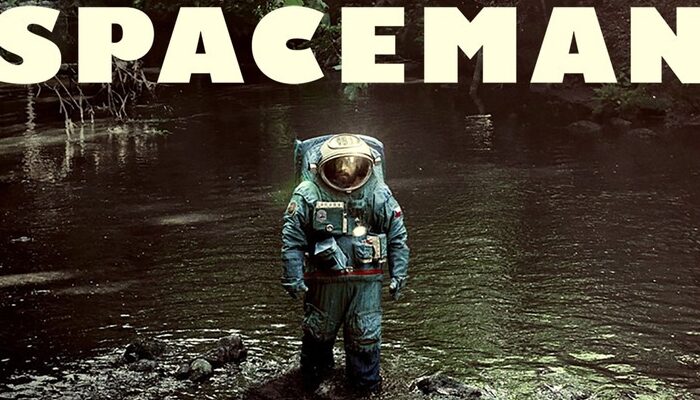Film Review – MONOLITH (2024): Minimalism, Bold Casting, & Bizarre Symbology Draw the Audience into a Thrilling, Waking Nightmare
Monolith Film Review
Monolith (2024) Film Review, directed by Matt Vesely, written by Lucy Campbell, and starring Lily Sullivan, Ling Cooper Tang, Ansuya Nathan, Erik Thomson, Terence Crawford, Matt Crook, and Alex Schulze.
Monolith (2024) is a psychological thriller, mystery, and science fiction film directed by Matt Vesely and written by Lucy Campbell. Taking the bold risk of making the unnamed interviewer protagonist (Lily Sullivan) the only visible actor—save for the brief appearance of her double (Alex Schulze)—on screen, Monolith plays with form as well as with the audience’s minds. With the rest of the cast only contributing their voices, the story’s arrival at the truth occurs through a haunting, minimalistic intimacy. Implicitly, this setup arises out of the desire to create a podcast atmosphere in order to replicate the interviewer’s relationship to her own audience. While the viewer is initially perplexed, restless, and a bit bored, it becomes easy to accept and enjoy the para-podcast environment that the filmmakers create; there are scenes which could be easily absorbed if you are chopping vegetables or pacing anxiously as you hear the interviewer descend into paranoia. Again, it is risky to demote the mise-en-scène to the role of Windows screensaver, but the engaging writing, acting, and suspense make it a success.
Conversely, much should be said about Michael Tessari’s cinematography gluing your eyes to the screen: Lily Sullivan’s commanding presence and believable portrayal of an obsessive journalist contrasts beautifully with the muted tones of her apartment and of her listeners’ visions. I gush without apology. Her performance—in terms of psychological range, voice, and thematic obligations—brings to mind Natalie Portman’s roles in Black Swan (2010), Jackie (2016), and Annihilation (2018). What Lily Sullivan accomplishes that stands out even from the aforementioned comparisons is that, without a visible supporting cast, she alone provides the extensive psychological facets that come with the territory of the thriller genre.
It is otherworldly how Monolith creates in the viewer, or I should say, viewer-listener, a rather unheard-of mixture of feelings throughout the film. Yes, as is to be expected, suspense and unease are there, especially as we realize the rectangular prisms are connected to their recipients’ secrets. Yet, the podcast ambiance also makes the audience feel cozy at times (pleaser refer to the frequent shots of the cute sea turtle and note how Lily Sullivan’s looks and voice will give you ASMR). By extension, the interviewer’s absence of loneliness despite her isolated state makes the audience feel an almost guilty jealousy at how much fulfillment she gains from being a journalist, even when it drives her into a twisted mind game. As the monoliths force her interviewees and herself to face their darkest secrets, the audience confesses to themselves what unexpected reactions emerge as they witness this story unfold. Through the intimacy of sound and elevation of the protagonist role to novel heights, Monolith etches a bas relief of unaddressed guilt on the brick of shared psychosis in order to show how the truth will set you free, but at a price.
Despite a few plot holes, unnerving pacing, and a suffocated feeling due to the single-actor-on-screen situation, the film sets an exciting precedent in the realm of the cinematic arts. Even scientists who have seen this film would ask themselves difficult questions about their modus operandi, given how the film challenges the fetishization of fact, when the truth encompasses paranormal atoms of experience irreducible to fact. Just as Monolith questions the validity of the line we draw between reality and hallucination, the film blurs the line between podcast and movie. What further divisions of form can we challenge? Poem and screenplay? Storytelling and shamanism? Film critic and autobiographer? Sign me up for this last one, since the viewing of Monolith is certainly a life event for me, not just a moment of media consumption.
Rating: 10/10
Leave your thoughts on this Monolith review and the film below in the comments section. Readers seeking to support this type of content can visit our Patreon Page and become one of FilmBook’s patrons.
Readers seeking more film reviews can visit our Movie Review Page, our Movie Review Twitter Page, and our Movie Review Facebook Page.
Want up-to-the-minute notifications? FilmBook staff members publish articles by Email, Google News, Feedly, Twitter, Facebook, Instagram, Tumblr, Pinterest, Reddit, Telegram, Mastodon, Flipboard, and Threads.
Related Articles
FilmBook's Newsletter
Subscribe to FilmBook’s Daily Newsletter for the latest news!












